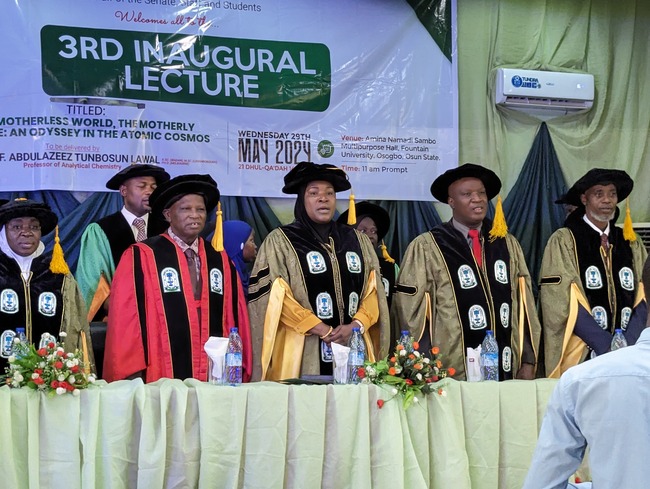A Professor of Analytical Chemistry, Professor Abdulazeez Tunbosun Lawal, made a compelling case for the urgent need to enhance funding and infrastructure for research in Nigeria.
During his lecture at Fountain University, Osogbo’s 3rd inaugural lecture, titled “The Motherless World, The Motherly Science: An Odyssey In The Atomic Cosmos,” highlighted critical gaps in the nation’s scientific research capabilities and proposed strategic solutions to address these challenges.
The leading figure in analytical chemistry, emphasized the indispensable role of analytical chemistry in solving environmental and human health issues, urging the Federal Government to establish key research laboratories in each geopolitical zone.
He pointed to the significant economic and research advancements in countries like China, South Africa, India, and Pakistan as models for Nigeria to follow.
“The development of biosensors, renewable energy, and other sectors depends heavily on research and development in electro-chemistry,” Prof. Lawal stated.
He noted the unfortunate lack of electro-analytical chemistry laboratories in many Nigerian colleges due to insufficient funding, stressing the need for immediate investment to bridge this gap.
ALSO READ: Why I appointed Wike as Minister, Tinubu reveals
To further bolster research, Prof. Lawal recommended that the Student Industrial Work Experience Scheme (SIWES) be made compulsory for analytical chemistry students, enhancing their practical experience.
He also called for a postgraduate fellowship program in every university to attract and retain exceptional students, ensuring they are adequately supported in their research endeavours.
Prof. Lawal’s call for a paradigm shift in Nigeria’s research approach includes viewing research as a foundational step toward development, necessitating substantial funding, access to advanced facilities, and robust industry collaboration.
He also highlighted the importance of rewarding productive academics through a national policy that recognizes significant contributions to international research publications.
Additionally, he urged the government to prioritize the protection of the country’s freshwater resources and monitor pollutants in water bodies regularly.
Agencies like the National Environmental Standards and Regulations Enforcement Agency (NESREA) and the National Water Research Institute (NWRI) should be empowered to oversee these efforts.
In a significant move, Prof. Lawal suggested that universities and research institutes receive procurement waivers from the Federal Government for timely acquisition of research facilities, bypassing bureaucratic hurdles.






